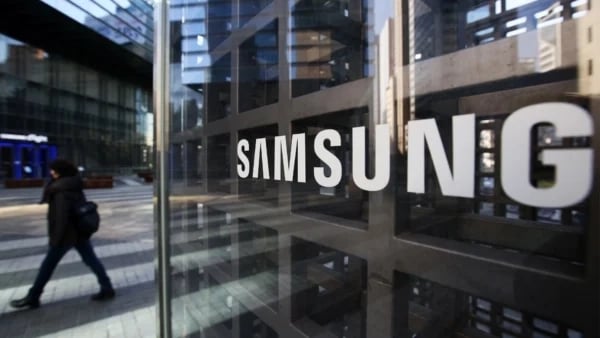Samsung Faces Profit Slump Amid Challenges in the Semiconductor Sector
South Korea’s Samsung Electronics, the world’s largest memory chip manufacturer, is grappling with a significant decline in profits due to systemic challenges in both high-performance memory chips and contract manufacturing segments. The company is expected to record a 21% drop in its first-quarter profits, driven by weak demand for artificial intelligence (AI) chips and ongoing losses in its contract chip production business. These challenges are further compounded by recent changes in leadership.
Leadership Changes Amid Surging Challenges
In late March, the sudden passing of Samsung co-CEO Han Jong-hee brought uncertainties to the company’s strategic leadership. This transition coincides with a challenging industry landscape; since the second half of 2022, Samsung has struggled with declining revenues in its core product lines, as competition from its main rival, SK Hynix, intensifies.
The projected 21% decrease in profit highlights Samsung's ongoing structural issues. Despite its leadership position in the memory chip market, the company faces difficulties adapting to a rapidly changing market environment.

Beyond AI A Tightrope Walk
One of the most pressing challenges for Samsung is its heavy reliance on the Chinese market. Although Chinese companies remain significant customers, U.S. export restrictions have reduced demand for advanced chips used in cutting-edge technologies. Instead, Chinese clients are opting for less advanced chips, which negatively impacts Samsung’s profit margins.
At the same time, the AI sector shows strong growth potential, with Nvidia leading the demand for high-performance chips. However, this market segment is gradually falling under the control of SK Hynix, which has been quicker to scale up production to meet rising demand.
Three Key Factors Driving Samsung's Woes
Dwindling Demand for AI Chips. The global AI market is witnessing intense competition, with Nvidia's dominance influencing the distribution of benefits among chip suppliers. Unlike its competitors, Samsung has been slower to meet the demand for high-performance solutions.
Challenges in Contract Chip Manufacturing. Samsung’s contract chip production business continues to report financial losses. Underutilized production capacity and lagging technological competitiveness contribute to the company’s difficulties in turning this segment profitable.
Reliance on the Chinese Market. A lack of diversified clientele increases Samsung’s risks. Sales in China are largely sustained by lower-cost products, which are less profitable compared to the high-tech solutions demanded by other markets.

Critical Challenges for Samsung
The projected decline in quarterly profits isn't just a reflection of Samsung’s current struggles but also an indicator of the urgent need for long-term structural reforms. Below are some key challenges shaping the company’s future:
Competitive pressure from SK Hynix, fueled by Nvidia's dominance in the AI market.
The impact of U.S. export restrictions on Samsung’s profitability in the Chinese market.
Continuing losses in the contract manufacturing segment.
Leadership gaps following sudden management transitions.

What Lies Ahead for Samsung
The global memory chip market remains highly competitive, and Samsung must not only maintain its current standing but also identify new avenues for growth. Failure to swiftly adapt to market changes could jeopardize the company’s leadership position in crucial segments.
While the upcoming first-quarter report is expected to confirm a significant decline in financial performance, this period of adversity may also serve as a turning point for Samsung to reassess its development strategies. Enhancing its technological capabilities, advancing AI research, and expanding its footprint into more lucrative markets will be critical for Samsung to regain investor confidence and solidify its future growth.















Comments
Innovative investment strategies are fueling a new era of capital growth in automation